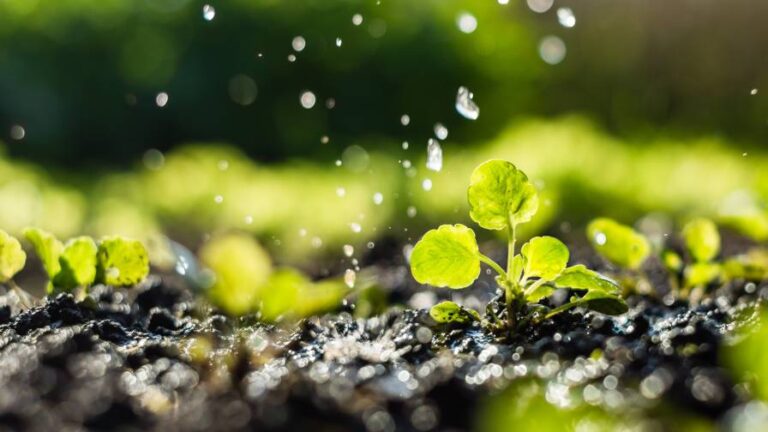Agriculture is one of the oldest professions of humankind and has changed over the years, but has always faced new challenges. All past generations have believed that they are living in the worst times in history and facing the worst possible problems. The current generation shares the same belief. The global agricultural sector faces multiple challenges, including climate change, global geopolitical difficulties, and the degradation of natural resources, especially soil quality.
With the world’s population expected to reach 9.1 billion by 2050, these challenges raise concerns about whether we can collectively ensure food security and access to nutritious food for the world’s people.
In this complex landscape, Agritech services have emerged as a potential catalyst for the next global agricultural revolution. Technology is continuously developing, and the use of intelligence in agriculture has become known as Agritech. Agritech is changing the face of both traditional and intensive agriculture by enabling farmers to produce more food using the same or fewer resources, with significantly less harm to the environment.
Precision Agriculture: Data-Driven Agriculture
Precision agriculture is perhaps one of the greatest achievements of agritech and has been adopted to make farming more efficient. This method uses information from sensors, GPS, IoT devices, satellite technology, etc. to manage and monitor crops like never before. Today, farmers and growers can get information about soil conditions, weather, crop health, and almost anything new that is happening in the field so they can make the right decisions about when to plant seeds, use fertilizers, when to harvest, etc.
For example, soil moisture sensors allow farmers to see how much water their crops need and schedule them to receive the right amount of water at the right time. Similarly, GPS-controlled equipment can help farmers avoid overusing seeds and fertilizers, optimizing productivity. Additionally, high-resolution images of fields through drones and satellite imagery can help farmers spot problems such as pest attacks and nutrient deficiencies early on. This approach makes farming practices more specific, which tends to increase crop yields and reduce environmental impact.
Automation and robotics: efficiency and precision
The nature of agriculture, a labor-intensive activity, is being changed by automation and robotics. Tasks like plowing, planting, and harvesting can be performed with minimal human intervention by AI-powered, GPS-enabled autonomous machines. These automated systems increase efficiency, reduce labor costs, and make agricultural operations more precise and consistent.
Another revolutionary innovation is robotic weed control. Current traditional weed control methods mainly rely on the use of chemical herbicides, which are harmful to the environment and pose health risks to humans. Robotic weeders use machine vision and AI to accurately locate weeds and selectively remove them, reducing the need for chemicals. This not only promotes sustainable agricultural practices, but also preserves soil fertility and biodiversity.
Biotechnology: Making crops more resilient
Biotechnology plays a key role in enhancing sustainable industrial agriculture by employing genetic engineering and other biotechnological techniques to produce crops that are resistant to pests, diseases, and environmental damage. For example, the application of genetically modified plants can be developed to be pest-resistant, eliminating the need for pesticide sprays. Similarly, crops can also be bred and genetically modified to have traits such as drought, heat, and salinity resistance, which means food security is ensured amid climate change due to global warming.
CRISPR is a relatively new form of gene editing that also enhances the potential of biotechnology in agriculture today. CRISPR allows for targeted modification of plant genes with great precision to achieve important qualities, such as higher yields through improved quality or a more palatable harvested crop. These developments not only reduce the environmental impact of agricultural practices, but also offer opportunities to improve the nutritional value and quality of food.
Sustainable Practices: Reducing Environmental Impact
In sustainable agricultural practices, agritech is one of the tools to minimize the impact on the environment. One of these sustainable practices is Integrated Pest Management (IPM), which uses biological control as well as cultural and mechanical methods to combat pests in an environmentally friendly way. For example, the use of pheromone traps and beneficial insect release systems within the framework of agritech tools enhances the implementation of the rush strategy in pest control.
Additionally, through agritech, regenerative agriculture is promoted as a form of agriculture that aims to increase soil productivity and species richness of plants and animals, thereby establishing the conditions to create healthy ecosystems. The application of technology makes cover crops, no-till farming and crop rotations more efficient, promoting soil health, reducing soil erosion and enhancing carbon sequestration.
A collaborative approach to sustainable change
As progress continues in the agritech sector, adoption remains a challenge for the two most vulnerable segments: smallholders and women farmers. As outlined by McKinsey Insights, globally, only 39% of farmers have adopted at least one technology service. This average is driven by a 62% adoption rate among European farmers, while in Asia, adoption is just 9%.
Typically, a lack of clarity about the technology’s return on investment (ROI) is one of the main reasons for such low adoption rates.
A joint effort by governments, the private sector including start-ups and investors, academia and civil society is now required. Given the complexity and interconnectedness of activities in the agricultural sector, a multi-stakeholder approach is the best way to scale up inclusive agritech.
As the world’s population continues to grow and environmental challenges intensify, agricultural technologies will play a vital role in the future of agriculture. Adopting these technologies is crucial to building a sustainable future for the agricultural sector, now and in the coming years.
0
1
Five
How Agritech is changing the face of sustainable industrial agriculture


